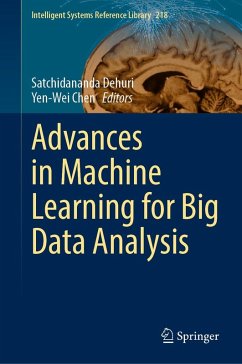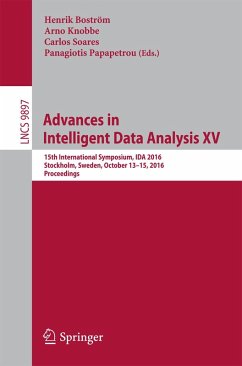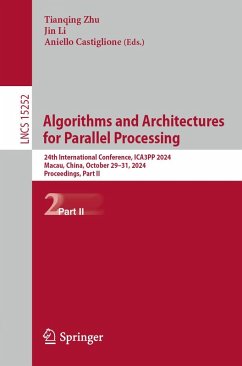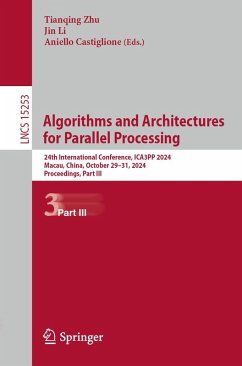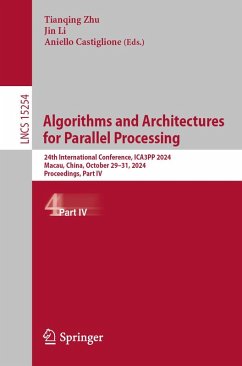
Learning with the Minimum Description Length Principle (eBook, PDF)
Versandkostenfrei!
Sofort per Download lieferbar
100,95 €
inkl. MwSt.
Weitere Ausgaben:

PAYBACK Punkte
50 °P sammeln!
This book introduces readers to the minimum description length (MDL) principle and its applications in learning. The MDL is a fundamental principle for inductive inference, which is used in many applications including statistical modeling, pattern recognition and machine learning. At its core, the MDL is based on the premise that "the shortest code length leads to the best strategy for learning anything from data." The MDL provides a broad and unifying view of statistical inferences such as estimation, prediction and testing and, of course, machine learning.The content covers the theoretical f...
This book introduces readers to the minimum description length (MDL) principle and its applications in learning. The MDL is a fundamental principle for inductive inference, which is used in many applications including statistical modeling, pattern recognition and machine learning. At its core, the MDL is based on the premise that "the shortest code length leads to the best strategy for learning anything from data." The MDL provides a broad and unifying view of statistical inferences such as estimation, prediction and testing and, of course, machine learning.
The content covers the theoretical foundations of the MDL and broad practical areas such as detecting changes and anomalies, problems involving latent variable models, and high dimensional statistical inference, among others. The book offers an easy-to-follow guide to the MDL principle, together with other information criteria, explaining the differences between their standpoints.
Written in a systematic, concise and comprehensive style, this book is suitable for researchers and graduate students of machine learning, statistics, information theory and computer science.
The content covers the theoretical foundations of the MDL and broad practical areas such as detecting changes and anomalies, problems involving latent variable models, and high dimensional statistical inference, among others. The book offers an easy-to-follow guide to the MDL principle, together with other information criteria, explaining the differences between their standpoints.
Written in a systematic, concise and comprehensive style, this book is suitable for researchers and graduate students of machine learning, statistics, information theory and computer science.
Dieser Download kann aus rechtlichen Gründen nur mit Rechnungsadresse in A, B, BG, CY, CZ, D, DK, EW, E, FIN, F, GR, HR, H, IRL, I, LT, L, LR, M, NL, PL, P, R, S, SLO, SK ausgeliefert werden.



